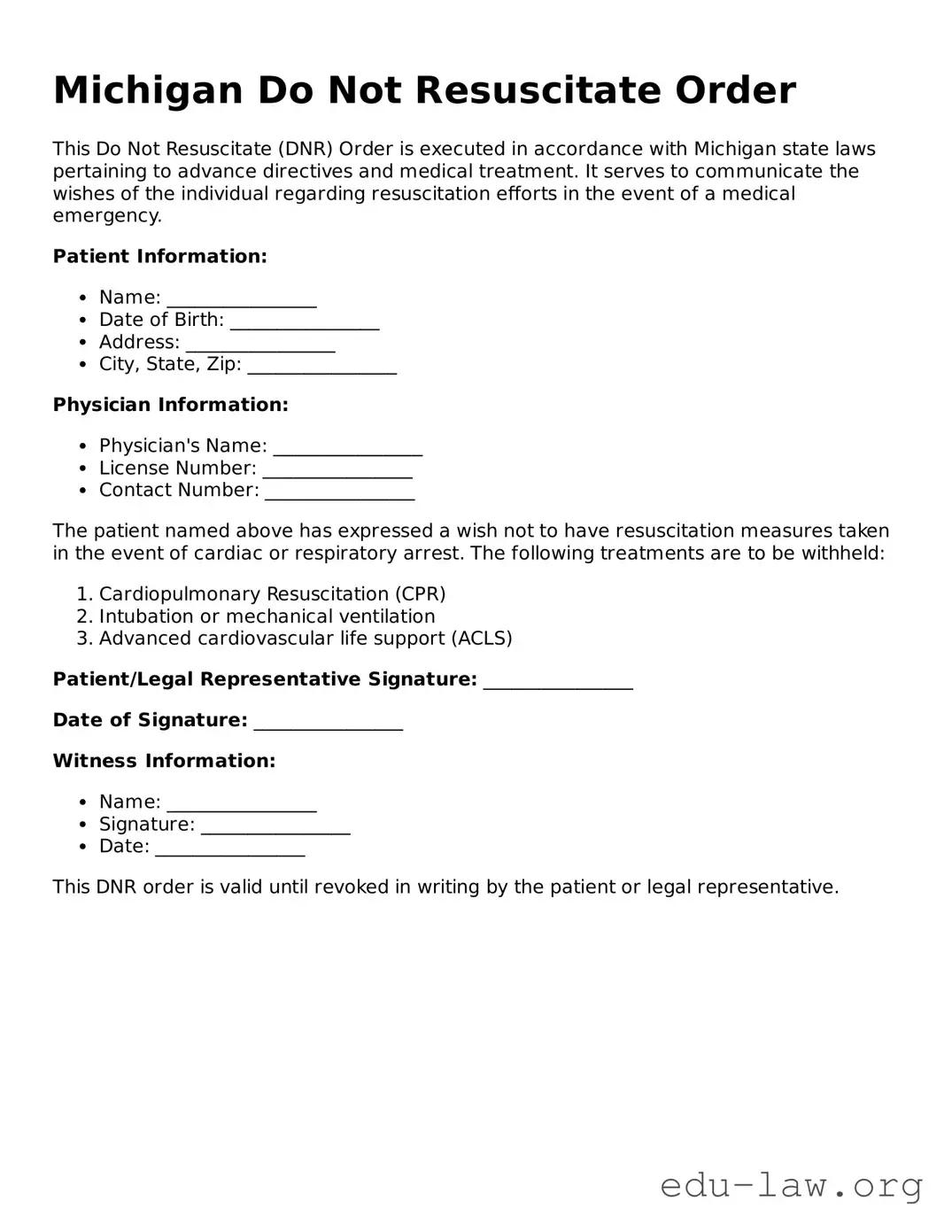What is a Michigan Do Not Resuscitate Order form?
The Michigan Do Not Resuscitate (DNR) Order form is a legal document that allows individuals to refuse resuscitation efforts in case their heart stops beating or they stop breathing. This form is intended for individuals who have a terminal condition or are in a situation where they wish to opt-out of extraordinary life-saving measures.
Who can complete the DNR Order form?
In Michigan, any adult who understands the implications of the document can complete a DNR Order form. This includes those facing a terminal illness or anyone who wishes to plan for their medical care in advance. The form must be signed by the individual and their physician to be considered valid.
What is required for the DNR Order to be effective?
For the DNR Order to be effective, it must be properly completed and signed by both the patient and a physician. After the form is signed, it should be kept in an easily accessible place and shared with family members, caregivers, and medical professionals involved in the patient's care.
Can a DNR Order be revoked or changed?
Yes, a DNR Order can be revoked at any time by the individual. To revoke it, the individual can destroy the original document or provide a new, written order indicating the desire to cancel the DNR. It is important to inform family members and medical providers about any changes made.
Will medical personnel respect the DNR Order?
Medical personnel are legally obligated to respect a valid DNR Order. However, it is critical to ensure that the form is filled out correctly and is readily available. Having copies of the document in the patient’s medical records and with caregivers can aid in ensuring that wishes are honored during emergencies.
What are the potential consequences of having a DNR Order?
Choosing to have a DNR Order can ease the emotional burden on both the patient and their loved ones during medical emergencies. However, it may also lead to difficult conversations about end-of-life care. Understanding one’s wishes and communicating them clearly is essential to navigating these circumstances.
Is a DNR Order the same as a living will?
No, a DNR Order and a living will serve different purposes. A DNR Order specifically addresses resuscitation efforts during a medical emergency, while a living will outlines an individual’s preferences for medical treatment and end-of-life care decisions more broadly. Both documents are important for advanced care planning.
Where can I get a Michigan Do Not Resuscitate Order form?
The Michigan Do Not Resuscitate Order form can typically be obtained from healthcare providers, hospitals, or local health departments. It may also be available online through the Michigan Department of Health and Human Services website. Ensure that the version used is the most current and compliant with state laws.
